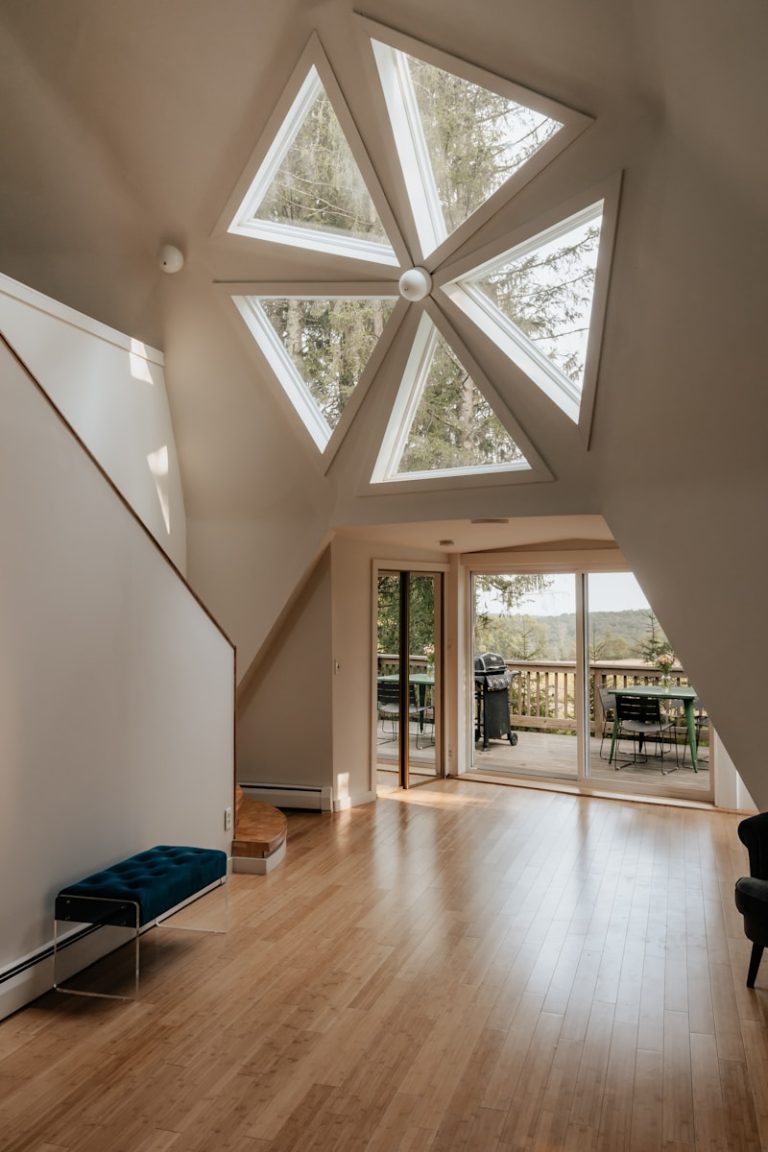5 Essential Tips for First-Time Home Buyers
Buying your first home is an exciting and daunting experience. It’s a big step towards financial stability and independence, but it can also be overwhelming with all the decisions and responsibilities that come with it. As a first-time home buyer, it’s important to educate yourself and be prepared for the journey ahead. To help you navigate through this process, here are 5 essential tips for first-time home buyers.
1. Determine your budget and stick to it.
Before you start looking at houses, it’s crucial to determine your budget. This includes not only the price of the house but also other expenses such as closing costs, property taxes, and homeowners insurance. It’s important to be realistic and not overextend yourself financially. Remember, just because you are approved for a certain amount by the bank, it doesn’t mean you have to spend it all. Consider your monthly income, expenses, and future plans before deciding on a budget. Once you have a budget in mind, stick to it. It’s easy to get carried away and fall in love with a house that is out of your price range, but it’s important to stay within your means to avoid financial strain in the long run.
2. Get pre-approved for a mortgage.
Getting pre-approved for a mortgage is a crucial step in the home buying process. It not only gives you a clear idea of how much you can afford, but it also shows sellers that you are a serious buyer. To get pre-approved, you will need to provide your financial information to a lender, such as your income, assets, and debts. They will then determine how much they are willing to lend you based on your credit score and financial history. Having a pre-approval letter in hand will make you a more attractive buyer and can give you an advantage in a competitive market.
3. Consider all the costs involved.
When buying a home, it’s important to consider all the costs involved, not just the purchase price. As mentioned earlier, there are other expenses such as closing costs, property taxes, and homeowners insurance. You should also factor in the cost of any necessary repairs or renovations, as well as ongoing maintenance costs. It’s important to have a clear understanding of all the costs involved to avoid any surprises down the road.
4. Location is key.
When looking for your first home, it’s easy to get caught up in the features and aesthetics of a house. However, it’s important to also consider the location. Is it close to your workplace? Are there good schools in the area? Is it a safe neighborhood? These are all important factors to consider, not only for your own convenience but also for potential resale value in the future. It’s also a good idea to research the neighborhood and visit at different times of the day to get a feel for the area.
5. Don’t be afraid to ask for help.
Buying a home can be overwhelming, especially for first-time buyers. Don’t be afraid to ask for help from professionals such as real estate agents, mortgage brokers, and home inspectors. They have the knowledge and experience to guide you through the process and help you make informed decisions. It’s also a good idea to seek advice from friends or family members who have gone through the home buying process before. They can offer valuable insights and advice based on their own experiences.
In conclusion, buying your first home is a big decision and it’s important to be well-informed and prepared. By following these 5 essential tips, you can make the home buying process smoother and less stressful. Remember to determine your budget, get pre-approved for a mortgage, consider all the costs involved, pay attention to the location, and don’t be afraid to ask for help. With the right preparation and guidance, you can find your dream home and make it a reality.
Navigating the Mortgage Process: A First Home Buyer’s Guide
Buying your first home is an exciting and daunting experience. It’s a big step towards financial stability and independence, but it also comes with a lot of responsibilities. One of the biggest challenges for first home buyers is navigating the mortgage process. With so many options and terms to understand, it can be overwhelming. But fear not, this first home buyer’s guide will help you navigate the mortgage process with ease.
The first step in the mortgage process is to determine how much you can afford. This involves looking at your income, expenses, and credit score. Your credit score plays a crucial role in determining the interest rate and loan amount you qualify for. It’s essential to check your credit score before applying for a mortgage and take steps to improve it if necessary.
Once you have a clear understanding of your financial situation, it’s time to start shopping for a mortgage. There are various types of mortgages available, such as fixed-rate, adjustable-rate, and government-backed loans. Each type has its pros and cons, so it’s crucial to research and compare them to find the best fit for your needs.
When comparing mortgages, don’t just focus on the interest rate. Look at the annual percentage rate (APR), which includes the interest rate and other fees associated with the loan. This will give you a more accurate picture of the total cost of the mortgage.
After choosing a mortgage, the next step is to get pre-approved. This involves submitting your financial information to a lender who will then determine how much they are willing to lend you. Getting pre-approved not only gives you a better idea of your budget but also shows sellers that you are a serious buyer.
Once you have been pre-approved, it’s time to start house hunting. This is the fun part, but it’s essential to stay within your budget. Don’t be tempted to stretch your budget for a dream home, as it can lead to financial strain in the long run. Make a list of your must-haves and nice-to-haves in a home, and be open to compromise.
Once you have found your dream home, it’s time to make an offer. Your real estate agent can help you with this process, but it’s essential to do your own research as well. Look at the prices of similar homes in the area and consider any repairs or renovations that may be needed. Don’t be afraid to negotiate, but also be prepared to walk away if the seller is not willing to meet your terms.
If your offer is accepted, the next step is to finalize your mortgage. This involves submitting all the necessary documents to the lender, such as proof of income, bank statements, and tax returns. The lender will also conduct an appraisal of the property to ensure it’s worth the amount you are borrowing.
Once your mortgage is approved, it’s time to close the deal. This involves signing a lot of paperwork, including the mortgage agreement and other legal documents. It’s essential to read through everything carefully and ask questions if you don’t understand something.
Congratulations, you are now a homeowner! But the journey doesn’t end here. It’s essential to budget and plan for ongoing expenses such as property taxes, insurance, and maintenance costs. It’s also a good idea to have an emergency fund in case of unexpected repairs.
In conclusion, navigating the mortgage process as a first home buyer can be overwhelming, but with the right knowledge and preparation, it can be a smooth and rewarding experience. Remember to do your research, stay within your budget, and don’t be afraid to ask for help from professionals. With determination and patience, you will soon be holding the keys to your very own home.
Budgeting for Your First Home: What You Need to Know
Buying your first home is an exciting and daunting experience. It’s a big step towards financial independence and stability, but it also comes with a lot of responsibilities. One of the most important aspects of purchasing your first home is budgeting. It’s crucial to have a solid understanding of your finances and what you can afford before diving into the home buying process. In this guide, we’ll discuss everything you need to know about budgeting for your first home.
The first step in budgeting for your first home is to determine your budget. This involves taking a close look at your income, expenses, and savings. Start by calculating your monthly income after taxes. This will give you a clear idea of how much money you have to work with. Next, make a list of all your monthly expenses, including rent, utilities, groceries, and any other bills. Subtract your expenses from your income to determine how much money you have left over each month.
Once you have a clear understanding of your monthly budget, it’s time to consider your savings. Ideally, you should have at least 20% of the home’s purchase price saved for a down payment. However, this may not be feasible for everyone, especially for first-time homebuyers. In this case, there are other options available, such as government-backed loans that require a lower down payment. It’s essential to research and understand all your options before making a decision.
In addition to the down payment, there are other costs associated with buying a home that you need to budget for. These include closing costs, which can range from 2-5% of the home’s purchase price, and moving expenses. It’s crucial to factor in these costs when determining your budget to avoid any surprises down the road.
Another important aspect of budgeting for your first home is considering your future expenses. Owning a home comes with additional costs, such as property taxes, homeowners insurance, and maintenance and repairs. It’s essential to budget for these expenses to ensure you can comfortably afford your home in the long run.
One way to make budgeting for your first home easier is to create a separate savings account specifically for your down payment and other home-related expenses. This will help you keep track of your progress and avoid dipping into your savings for other purposes. You can also set up automatic transfers from your checking account to your savings account to ensure you’re consistently saving towards your goal.
It’s also crucial to keep in mind that your budget may change over time. As you progress in your career, your income may increase, allowing you to save more towards your down payment. On the other hand, unexpected expenses or changes in your financial situation may also impact your budget. It’s essential to regularly review and adjust your budget as needed.
In addition to budgeting for your first home, it’s also essential to have an emergency fund. This is a separate savings account that can cover unexpected expenses, such as a job loss or major home repairs. Experts recommend having at least three to six months’ worth of expenses saved in your emergency fund.
In conclusion, budgeting is a crucial aspect of purchasing your first home. It’s essential to have a clear understanding of your finances and what you can afford before starting the home buying process. Remember to consider all costs associated with buying a home, including the down payment, closing costs, and future expenses. Regularly reviewing and adjusting your budget will help you stay on track and achieve your goal of becoming a homeowner. With proper budgeting and planning, you’ll be well on your way to owning your first home.
Understanding Home Inspections: A First Home Buyer’s Checklist
Buying your first home is an exciting and daunting experience. There are so many things to consider and decisions to make. One crucial step in the home buying process is the home inspection. As a first-time home buyer, you may not be familiar with what a home inspection entails and what to look for. That’s why we have put together this first home buyer’s checklist to help you understand home inspections and ensure that you make an informed decision when purchasing your dream home.
First and foremost, it’s essential to understand what a home inspection is and why it’s necessary. A home inspection is a thorough examination of a property’s condition, including its structure, systems, and components. It is usually conducted by a professional home inspector who is trained to identify any potential issues or defects in the property. The purpose of a home inspection is to provide you with a detailed report of the property’s condition, allowing you to make an informed decision about the purchase.
Now that you know what a home inspection is let’s dive into the first home buyer’s checklist for understanding home inspections.
1. Research and Hire a Qualified Home Inspector
The first step in the home inspection process is to research and hire a qualified home inspector. It’s crucial to choose a reputable and experienced home inspector who is licensed and insured. You can ask for recommendations from friends or family who have recently purchased a home or do your own research online. Make sure to read reviews and check the inspector’s credentials before making a decision.
2. Attend the Inspection
As a first-time home buyer, it’s essential to attend the home inspection. This will give you the opportunity to ask questions and get a better understanding of the property’s condition. It’s also a chance to learn about the home’s systems and how to maintain them properly. The home inspector will walk you through the property and point out any potential issues or defects.
3. Take Notes and Ask Questions
During the inspection, it’s essential to take notes and ask questions. This will help you remember important details and understand the inspector’s findings. Don’t be afraid to ask questions, no matter how small they may seem. Remember, this is your future home, and you have the right to know everything about it.
4. Pay Attention to Major Systems and Structural Issues
While the home inspector will examine every aspect of the property, it’s crucial to pay special attention to major systems and structural issues. These include the foundation, roof, plumbing, electrical, and HVAC systems. These are costly to repair or replace, so it’s essential to know their condition before making a purchase.
5. Review the Inspection Report
After the inspection, the home inspector will provide you with a detailed report of their findings. Take the time to review this report carefully. It will include information about the property’s condition, any potential issues or defects, and recommendations for repairs or further inspections. If there are any major issues, you may want to consider negotiating with the seller or walking away from the purchase.
In conclusion, a home inspection is a crucial step in the home buying process, especially for first-time home buyers. It’s essential to research and hire a qualified home inspector, attend the inspection, take notes and ask questions, pay attention to major systems and structural issues, and review the inspection report carefully. By following this first home buyer’s checklist, you can ensure that you make an informed decision when purchasing your dream home.
Maximizing Your First Home Purchase: Negotiation Strategies for Buyers
Buying your first home is an exciting and daunting experience. It’s a big financial commitment and can feel overwhelming at times. However, with the right negotiation strategies, you can maximize your first home purchase and make the process smoother and more affordable.
The first step in any negotiation is to do your research. This is especially important when it comes to buying a home. You need to know the market, the average prices in the area, and the current trends. This will give you a better understanding of what to expect and what is a fair price for the property you are interested in.
Once you have done your research, it’s time to set your budget. This is a crucial step as it will determine the type of property you can afford and the negotiation tactics you can use. Be realistic with your budget and don’t forget to factor in additional costs such as closing fees, taxes, and maintenance.
When it comes to negotiating, it’s important to have a clear idea of what you want and what you are willing to compromise on. Make a list of your must-haves and your nice-to-haves. This will help you stay focused during the negotiation process and avoid getting swayed by emotions.
One of the most effective negotiation strategies for first-time homebuyers is to get pre-approved for a mortgage. This shows the seller that you are a serious buyer and have the financial means to make the purchase. It also gives you a better idea of your budget and can help you negotiate a better price.
Another important tactic is to be flexible with your timeline. If the seller needs to close the deal quickly, you can use this to your advantage by offering a shorter closing period. On the other hand, if the seller is in no rush, you can ask for a longer closing period to give you more time to secure financing or complete any necessary inspections.
When it comes to making an offer, it’s important to be strategic. Start with a lower offer than your budget allows, but not so low that it will offend the seller. This gives you room to negotiate and can potentially save you thousands of dollars. However, be prepared for the seller to counteroffer. This is where your research and budget come into play. If the counteroffer is within your budget and reasonable, consider accepting it. If not, you can counter back or walk away from the deal.
It’s also important to consider the condition of the property when negotiating. If there are any major repairs or renovations needed, you can use this to your advantage by negotiating a lower price or asking the seller to cover the costs. However, be prepared to compromise on minor repairs or cosmetic changes.
In addition to negotiating the price, you can also negotiate other terms of the sale. For example, you can ask the seller to include certain appliances or furniture in the sale, or to cover the closing costs. These small concessions can add up and make a big difference in your overall budget.
Lastly, don’t be afraid to walk away from a deal if it doesn’t meet your needs or budget. It’s important to remember that there will always be other properties on the market. Don’t let emotions cloud your judgment and stick to your budget and must-haves list.
In conclusion, negotiating is a crucial part of the home buying process. With the right strategies and a clear understanding of your budget and needs, you can maximise your first home purchase and make it a more affordable and enjoyable experience. Remember to do your research, be flexible, and don’t be afraid to walk away if the deal doesn’t meet your expectations. Happy house hunting!



